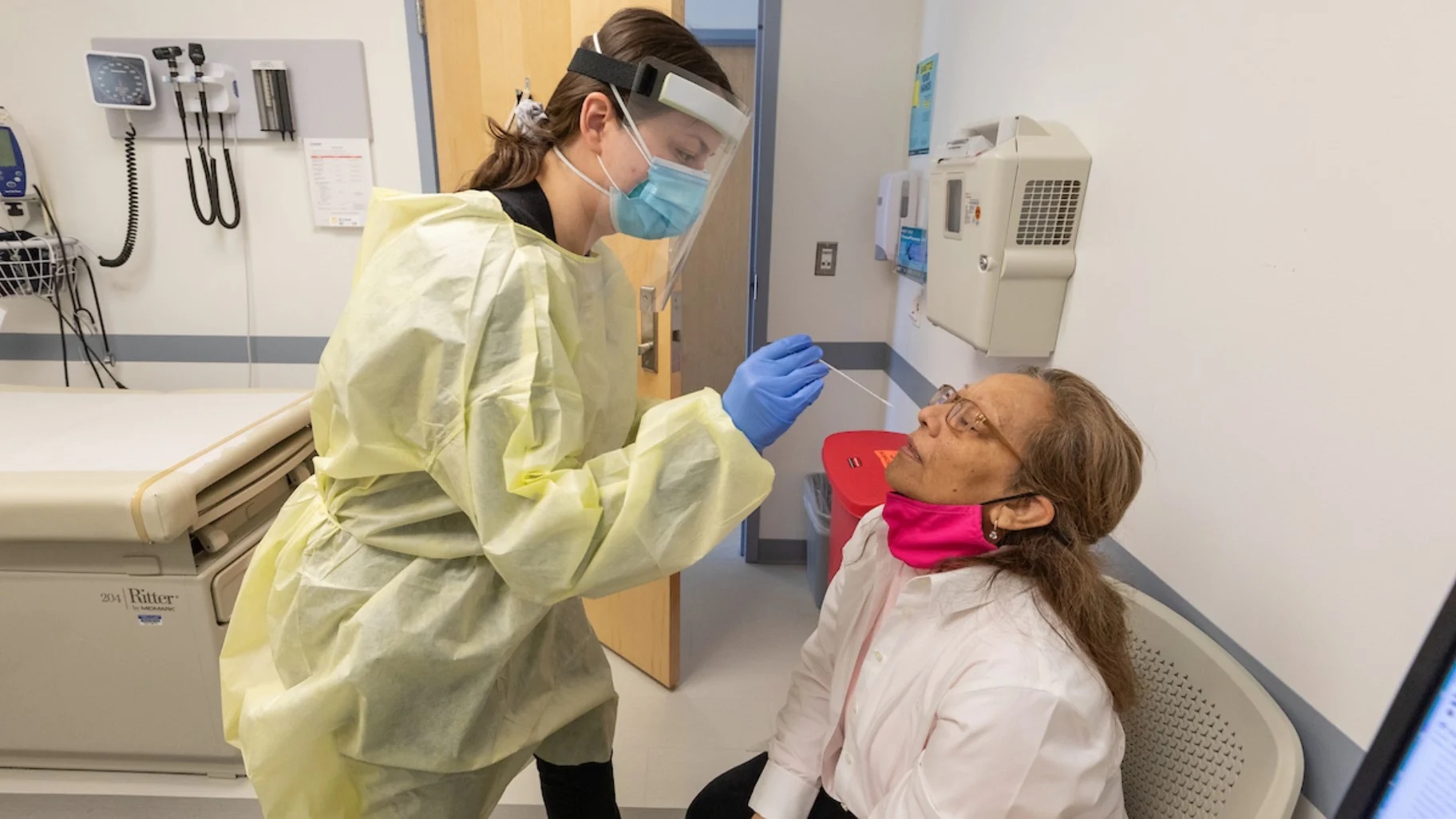
The Centers for Disease Control and Prevention (CDC) is extending its program for nasal swabbing of international travelers to include Chicago’s O’Hare and Miami airports. This initiative, launched in 2021, aims to detect COVID-19 variants and other infectious diseases. Participants volunteer for nasal swabbing and are provided with COVID-19 home test kits. The program has already collected samples from over 475,000 travelers from 135 countries. With a budget of $37 million, it partners with companies like Ginkgo Bioworks and XWell to expand surveillance efforts to encompass more than 30 pathogens.
The Centers for Disease Control and Prevention (CDC) is broadening its initiative for nasal swabbing of international travelers to strengthen global health surveillance. Initially launched in 2021, this program has been instrumental in identifying COVID-19 variants swiftly. Now, with the inclusion of Chicago’s O’Hare and Miami airports, the CDC aims to enhance its capabilities in detecting infectious diseases. By inviting participants to volunteer for nasal swabbing and providing COVID-19 home test kits, the program facilitates early detection and containment efforts. This expansion underscores the CDC’s commitment to proactive health surveillance.
The CDC’s pioneering program invites arriving international passengers to voluntarily undergo nasal swabbing and respond to inquiries regarding their recent travel history. Initially launched in 2021 at six airports, this initiative has proven instrumental in swiftly identifying emerging coronavirus variants. Now, in a strategic expansion, the CDC is extending this program to include two more major hubs: Chicago’s O’Hare International Airport and Miami International Airport.
According to Allison Taylor Walker, a spokesperson for the CDC, the addition of Miami and Chicago to the program’s roster is pivotal in gathering samples from regions where global disease surveillance may be less robust. She emphasized the importance of maintaining a comprehensive understanding of global health trends to enhance preparedness for future outbreaks. “What we need is a good view of what’s happening in the world so we’re prepared for the next thing,” Walker remarked.
While the primary focus of the program remains on detecting COVID-19 variants through genomic testing of nasal swabs, it also encompasses screening for other respiratory viruses such as influenza and respiratory syncytial virus (RSV).
Notably, participants in the program are not directly informed of their test results. However, they are provided with a COVID-19 home test kit to facilitate personal monitoring, according to CDC officials.
Since its inception, the initiative has garnered samples from over 475,000 air travelers arriving from more than 135 countries, underscoring its widespread reach and significance in global health surveillance efforts.
In addition to nasal swabbing, health officials have been actively monitoring wastewater discharged from international flights at select airports. While this surveillance primarily targets COVID-19, CDC authorities are exploring the feasibility of extending this approach to detect other pathogens, as noted by Walker.
With a current budget of approximately $37 million, the CDC program relies on partnerships with two contracted companies, Ginkgo Bioworks, and XWell, for sample collection and testing. These collaborations are integral to the program’s scalability and ambition to broaden its scope to encompass screening for over 30 different disease-causing agents.
The expansion of the CDC’s nasal swabbing program to Chicago’s O’Hare and Miami airports signifies a significant step towards bolstering global health surveillance. By leveraging partnerships with companies like Ginkgo Bioworks and XWell, the program aims to broaden its reach and enhance detection capabilities for a wide range of pathogens. With over 475,000 samples collected from travelers worldwide, this initiative exemplifies the importance of proactive measures in combating infectious diseases. Moving forward, the CDC remains dedicated to advancing innovative strategies for early detection and containment, reaffirming its commitment to safeguarding public health on a global scale.

